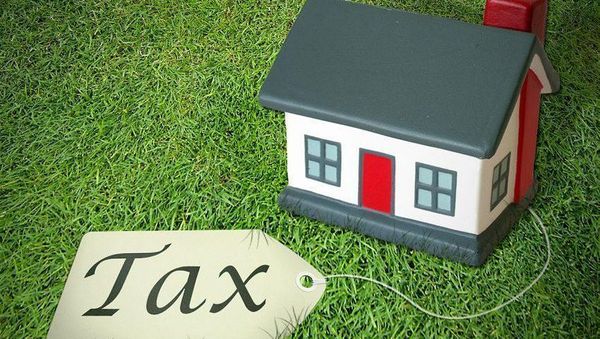Most counties across Texas are continuing to see a ramp-up in property valuations and property tax rates. Preliminary numbers show the average property value increase in Harris County to be 15.7%. But some homeowners are starting to see property costs begin to fall slightly below their highest peaks. While this can be great news for homeowners reaching the end of their budgets, it's still essential to monitor tax news in your area, ensure your property exemptions are all in order, and confirm that the details on your property valuation are accurate.
Along with these steps, always make sure you protest your property taxes, especially the section regarding your property valuation, to fight for a fair property tax bill. Even if your property cost is lower this year, you may be available to save additional dollars. Keeping reading to see:
- What the property tax protest process can do to help you
- Our top six reasons to protest your taxes even if your property cost didn't increase
- How to manage the property tax protest when you're busy
What Does a Property Tax Protest Do?
Every property taxpayer in Texas has the right to protest their property valuation to an appraisal review board (ARB). Through this process, you can note if you think your home's valuation is inaccurate, provide evidence and a counter-valuation to substantiate your point, and either negotiate with representatives of the tax appraisal district or carry your case through to a hearing.
This process is triggered by a homeowner filing a written protest before May 15th or 30 days after your notice of appraised value is mailed out in the spring. While a form is available to simplify the process, your tax office must accept any written information provided before the deadline. After that, your district may fully agree to your counter-valuation, propose a middle-ground value that you can accept or decline, and then move on to a formal hearing process in front of the appraisal review board.
Once you reach the hearing stage, you and a tax district representative will present evidence to support your arguments to the ARB, which is a panel of residents. They will decide your property valuation, and that number will be entered into the record (though you can also appeal their decision later).
Ultimately this process provides two possible outcomes:
- You decrease your property valuation for tax purposes. This then reduces your total property tax bill.
- The property valuation does not decrease. While this can be frustrating, you know you did everything possible to reduce your property tax bill and can be assured the valuation is reasonably accurate.
(Note: Lowering your home's valuation for property tax purposes does not lower your home's actual value if you decide to sell your home later. While property tax and home-selling processes involve 'property values' and 'appraisals,' the operations are separate.)
When Do You See the Biggest Benefits From Protesting Your Property Taxes?
Protesting your property taxes can seem tedious, frustrating, or overwhelming. But there are several benefits it can bring. While we recommend protesting your property taxes every year, these circumstances can help you get the most considerable value:
- If you don't qualify for a homestead exemption: If you don't qualify for an automatic cap on your property's valuation increase, protesting your property taxes is essential to avoid runaway increases and unaffordable tax obligations.
- If you're a new homeowner: During the first year of owning a new home, your property taxes can feel like they're in flux. Move quickly to file for a homestead exemption, and protest your property taxes in the interim so you can make sure your home's property tax valuation is at the lowest possible "starting point" for when the automatic cap kicks in.
- If you're about to turn 65: Senior homeowners can qualify for an over-65 exemption, which brings a more considerable array of caps and exemptions. Protesting this year is especially vital so you can lock in the lowest possible amount of school district property taxes, which becomes a fixed number that won't increase for qualifying seniors.
But What If You Don't Get a Notice of Appraised Value?
A notice of appraised value is a document that tax appraisal districts must send out if your valuation increases in a given year. These documents include the new value and instructions for how to protest. Even if you don't receive a form—because it got lost or your property valuation didn't increase—don't forget to protest!
Related: Texas Property Tax Increases for 2023: What Should You Expect?
You can find details about the process on your local government's tax appraisal district website, the Texas Comptroller's website, or in person at your local appraisal district's building or office. Most counties also have processes for either protesting online or sending the form through the mail.

6 Reasons to Protest Your Property Taxes, Even If the Cost Is Going Down
When your property costs go down, and there's less financial pressure, protesting your property taxes can feel less of a priority. But by completing the process every year, you can still get significant benefits. Read through this list of six reasons to protest to see which benefits and potential tax savings apply to your situation.
The Property Valuation Might Still Be Too High
If your property valuation didn't increase this year, that doesn't mean it's accurate. It is unlikely that your property value didn't fluctuate in the past year. Protest your property taxes and collect evidence that can support a lower valuation. All the reasons why your tax appraisal district may have factored into not raising the value will like have some room for a decrease.
Your Property Tax Bill May Have Gone Down Because of Lower Tax Rates or Recent Legislation, Not Accurate Valuation
You might miss an opportunity to save if you're looking at just your property tax bill total, not the property valuation itself. The tax bill itself may be lower because:
- Your area may have reduced the tax rate for one or more levies.
- The expected budget for the year may have decreased.
- Your location may receive more state funding, thereby reducing the tax burden on property owners.
- Exemptions may have increased or newly gone into effect.
These reasons still leave plenty of room to protest the property valuation itself.
Protesting Ensures You Pursue the Lowest Property Rate
Just because your property valuation is lower doesn't mean it's reached its lowest possible level. Protest to make sure you aren't leaving potential savings on the table.
Get Into the Habit of Protesting Every Year
Protesting your property taxes every year is an excellent financial habit, not a one-off project if your taxes skyrocket one year. By building this process into your spring-time personal finance to-dos (whether you hire a service or manage the process yourself), you can more effectively manage your taxes and ensure you're paying the lowest possible taxes. Making this a habit also makes you less likely to miss deadlines.
There May Be Mistakes With Your Exemptions
The protest process doesn't just apply to your property valuation. You can also protest mistakes in your exemptions filings, land descriptions, and other vital details. It's essential to verify all the details on your record.
Lower Property Costs Might Not Be Directly Due to Your Property Tax Valuation
You might see a lower mortgage bill and think it's because of lower property taxes. After all, if you have an escrow account, your mortgage holder will send you a bill every month that includes (i) the principal and interest payment for your home, (ii) 1/12 of your annual property insurance premium, and (iii) 1/12 of your estimated property tax bill. Your monthly mortgage will decrease if your services provider anticipates a reduced property tax bill.
Related: Ways to Cut the Tax Value of Your Property
However, there are other reasons why your monthly bill may decrease that have nothing to do with your anticipated property taxes, such as:
Refinancing
You'll see a lower monthly bill if you refinanced your mortgage to get a lower interest rate. But the property tax portion will be entirely unaffected by this process. It may have even gone up without you noticing because of the more considerable savings in another part of the bill.
The Previous Year Had "Make-Up" Property Tax Allotments for Your Escrow Account
When your mortgage holder underestimates your property taxes, they will raise the amount next year out of caution to compensate for that gap. If the property tax portion of your bill settles back down the following year, that may not be due to an actual decrease in your property taxes.
Protesting Your Property Taxes: Get Help, Get Started
Protesting your property taxes is a valuable opportunity. You can potentially reduce your tax bill, ensure your records are accurate, and set up good personal finance habits. Even in years when your property costs go down, it's still a good practice for all the same reasons. You can access those same benefits by using a property tax protest service to manage the process on your behalf.
At Home Tax Shield, we’ll help you protest your property taxes whether or not your property costs have gone down, so you can seize every possible route to lower your property tax bills. Sign up today to get started!






